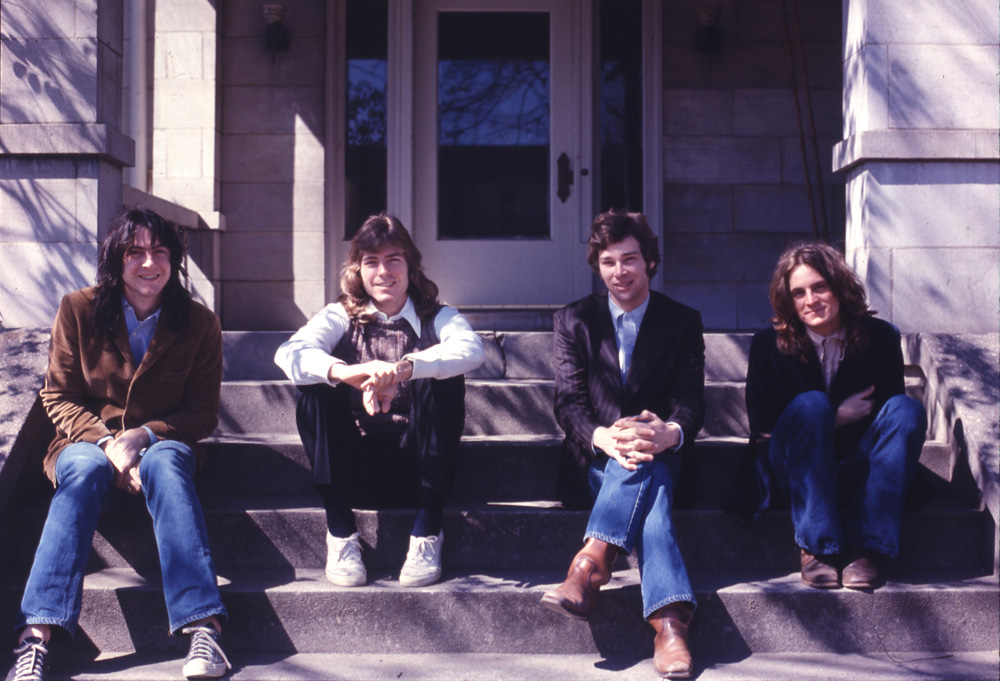For a work-in-progress screening that its director Drew DeNicola now says “wasn’t necessarily for the uninitiated,” the rock doc “Big Star: Nothing Can Hurt Me” seemed to win over a lot of new fans for both the band and the film (including us) when it premiered at the SXSW Film Festival in March. In a sense, the screening was perfect, not only because of its warm reception or the fact that one could literally experience the profound influence the small band from the South had on every generation of musicians to follow their all-too-brief career in the ‘70s in the post-screening performance of their album “Third” featuring the likes of R.E.M.’s Peter Buck, Wilco’s Pat Sansone and M. Ward, but because it was unfinished.
As anyone familiar with the band knows and what makes Big Star such a ripe subject for a documentary is how after their acclaimed first album “#1 Record” was mishandled by their label Stax Records, fractures within the group led by the enigmatic lead singer Alex Chilton started to emerge, leading to the departure of co-founder and guitarist Chris Bell before their second album “Radio City” and multiple breakups before and after their self-descriptively titled “Third” that made their music richer, but deprived them of having the commercial success they deserved at the time.
“There’s a reason why all three of their records have consistently been included in Rolling Stone’s Top 500 albums of all time,” said DeNicola, who is currently hard at work on the final cut. “They’re just so listenable but also slightly unstable with these dark and melancholic elements but all held together with this sublime production thanks to John Fry at Ardent Studios.”
To a certain degree, pulling together all those elements is a responsibility that’s now fallen into the hands of DeNicola – or in his words, “articulate Big Star’s unique place as an interesting anomaly and perhaps ‘the greatest footnote in rock history’” – as he works towards completing “Big Star: Nothing Can Hurt Me.” However, with a chance to do something for the band that they weren’t allowed to do for themselves in telling their story and establishing their rightful place in music’s continuum, the filmmakers are calling on Kickstarter to help make sure they do it right before a June 28th deadline.
With the funds going towards the naturally pricey music rights and other post-production costs to get the film in tip-top shape, the production is aiming for a full-on festival run this fall to be followed by a release in 2013. (To that end, they’ve brought in top-flight editor in “Page One: Inside the New York Times” cutter Chris Branca and “Be Here to Love Me: A Film About Townes Van Zandt”‘s Michael Taylor to help with the final edit, a daunting task when considering DeNicola and crew have compiled over 100 hours’ worth of footage.) If the Kickstarter campaign is successful, it would be a further expression of love for what has truly been a labor of it on the part of its filmmakers, all fans of the band who have been piecing together Big Star history since producer Danielle McCarthy first headed down to Ardent Studios in Memphis where the band recorded in 2007.
A devotee of Big Star ever since hearing an acoustic cover of “Kangaroo” by a friend in college, McCarthy was able to reach out Ardent’s John Fry, who in turn became a guide of sorts to the band’s history (and eventually an executive producer), helping her with some initial shoots to collect interviews and other footage. Soon enough, she found a kindred spirit in DeNicola, who also fell hard for the group in college and made his way to the South in 2009 to start working on the project in earnest, talking to folks such as the late producer Jim Dickinson and surviving member Jody Stephens. Since then, the two were joined by producer Olivia Mori, who has assisted DeNicola with the extensive research and additional shoots that have gone into the film, which covers Big Star’s origins all the way from Chilton’s start in the ‘60s pop outfit The Boxtops to the revival of the band in recent years and Chilton’s untimely death in 2010.
While good timing was never on the side of Big Star, it has been for the film as the band’s cult following has extended beyond fellow rockers with a whole new appreciation for their sonic symphonies through reissues of the band’s three albums and subsequent solo projects, ultimately even reaching the mainstream when the band’s exuberant anthem “In the Street” became the theme song for “That ‘70s Show.” Still, as DeNicola has learned over the course of the film’s lengthy production, Big Star was meant to live in the present, revealing something new every day.
“I just noticed as I was cutting a scene yesterday that taken as a whole Big Star functions as a tiny story that explains the whole rock and roll phenomenon from the fantasy conjured while “playing your tennis racket in the mirror” [as Jim Dickinson says] to the reality of the business of making money and achieving fame,” said DeNicola. “The transcendence of the Big Star story is that the fantasy remained deep in the grooves of those records and, unsullied by the industry and popular tastes, the band and their music has become the stuff of rock legend.”
For just a few bucks, you can help that legend grow.
To back this project and watch a trailer for the film, check out the Kickstarter page here. And follow the film’s progress on Twitter, Facebook and its official site.




